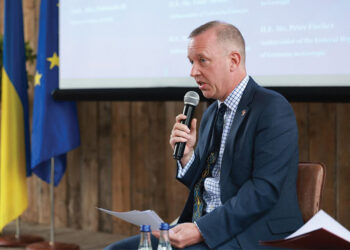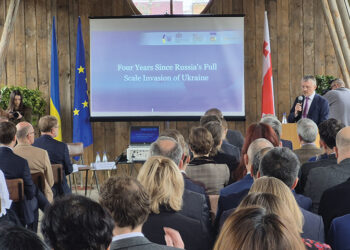Despite some progress at legislative and policy levels in Georgia since 2015, racism and intolerance against some ethnic and religious groups and, in particular, against LGBTI persons remains a problem, teaching of Georgian to historical ethnic minorities is still vastly insufficient, and government officials and politicians undermined the reputation of the Public Defender (Ombudsman), which includes the function of national equality body, says the European Commission against Racism and Intolerance (ECRI), a Council of Europe monitoring body, in a new report published Thursday.
Since the adoption of ECRI’s previous report on Georgia in 2015, progress has been made and good practices developed in several fields. In particular, a civic education course on intercultural relations for schoolteachers has been successfully developed, the number of violent attacks against Jehovah’s Witnesses has significantly decreased, and 78 Roma persons have received identification documents.
In the first few months following Russia’s full-scale invasion of Ukraine in February 2022, nearly 50,000 Ukrainians fleeing the war entered Georgia. Initial accommodation, healthcare and education were made available to them. There was generally a very welcoming attitude towards them in Georgian society. In its report, ECRI recommends developing a longer-term sustainable plan in support of people displaced from Ukraine.
At the same time, tens of thousands of Russians also arrived in Georgia. When anti-Russian resentment and discriminatory treatment occurred, the authorities took swift action, including in consumer rights regulations. The Public Defender and the Council of National Minorities spoke out against negative stereotyping and hate speech against Russians. ECRI considers this a good practice.
Despite the progress achieved, some issues give rise to concern. Certain activities of the Public Defender, linked to a specific part of the institution’s mandate (and the situation of imprisoned former President Mikheil Saakashvili), attracted harsh criticism from some government officials and politicians, thereby also a negative impact on the Public Defender’s work in areas of relevance to ECRI. In its report, ECRI recommends that the authorities ensure that politicians, particularly government members, refrain from comments undermining the credibility, independence, and reputation of the Public Defender’s institution.
Despite the decrease in violence against Jehovah’s Witnesses, religious intolerance remains an issue in Georgia. In its report, ECRI notes that its previous priority recommendation concerning religious discrimination and intolerance (including disputes about religious property) has still not been implemented. ECRI also strongly recommends that the authorities focus their policies in the area of religion on the principle of non-discrimination and the promotion of religious tolerance.
The level of teaching of Georgian as a second language to non-mother tongue speakers among the historical ethnic minorities in the country is still vastly insufficient. ECRI recommends, as a matter of priority, that the Georgian authorities significantly increase the number of hours of teaching of Georgian as a second language in minority schools at the primary and secondary levels. ECRI will follow up on the implementation of this recommendation within the next two years.
There is also no joint working group of government and NGO representatives, notes ECRI, to discuss LGBTI equality issues, no possibility to register same-sex partnerships, and no clear criteria for legal gender recognition. ECRI recommends addressing these issues.
In July 2021, large-scale counter-demonstrations against an LGBTI March in Tbilisi descended into violence against participants, organisers and journalists. In the view of ECRI, these attacks should be effectively investigated, perpetrators held to account and such acts prevented from re-occurring in the future, including through a review of police operations during such events.
Hate speech, especially online, against LGBTI persons has been a growing problem, and there is no effective monitoring system for racist and anti-LGBTI hate speech. Similarly, there has still been no specialist unit set up within the police to deal specifically with hate crime cases. Against this background, ECRI recommends establishing an effective monitoring system for hate speech and to assess the impact of the training activities, including for law enforcement officials and prosecutors dealing with hate crime cases.
* * *
The European Commission against Racism and Intolerance (ECRI) is a unique human rights body that monitors action against racism, discrimination (on grounds of “race,” ethnic/national origin, colour, citizenship, religion, language, sexual orientation, gender identity and sex characteristics) and intolerance in Europe. It prepares reports and issues recommendations to member states.














